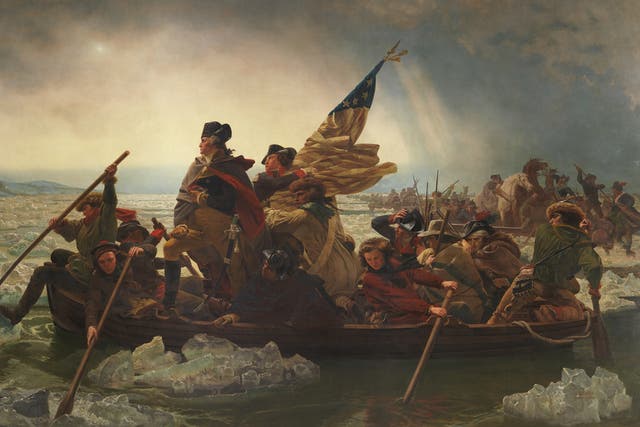
The American Revolutionary War was an insurrection by Patriots in the 13 colonies against British rule, resulting in American independence.
Updated: June 24, 2024 | Original: October 29, 2009

The Revolutionary War (1775-83), also known as the American Revolution, arose from growing tensions between residents of Great Britain’s 13 North American colonies and the colonial government, which represented the British crown.
Skirmishes between British troops and colonial militiamen in Lexington and Concord in April 1775 kicked off the armed conflict, and by the following summer, the rebels were waging a full-scale war for their independence.
France entered the American Revolution on the side of the colonists in 1778, turning what had essentially been a civil war into an international conflict. After French assistance helped the Continental Army force the British surrender at Yorktown, Virginia, in 1781, the Americans had effectively won their independence, though fighting did not formally end until 1783.
For more than a decade before the outbreak of the American Revolution in 1775, tensions had been building between colonists and the British authorities.
The French and Indian War, or Seven Years’ War (1756-1763), brought new territories under the power of the crown, but the expensive conflict lead to new and unpopular taxes. Attempts by the British government to raise revenue by taxing the colonies (notably the Stamp Act of 1765, the Townshend Acts of 1767 and the Tea Act of 1773) met with heated protest among many colonists, who resented their lack of representation in Parliament and demanded the same rights as other British subjects.
Colonial resistance led to violence in 1770, when British soldiers opened fire on a mob of colonists, killing five men in what was known as the Boston Massacre. After December 1773, when a band of Bostonians altered their appearance to hide their identity boarded British ships and dumped 342 chests of tea into Boston Harbor during the Boston Tea Party, an outraged Parliament passed a series of measures (known as the Intolerable, or Coercive Acts) designed to reassert imperial authority in Massachusetts.
Although not as iconic as those fought in the North, battles waged in the South determined the outcome of the Revolutionary War.
Colonists didn't just take up arms against the British out of the blue. A series of events escalated tensions that culminated in America's war for independence.
After the Revolutionary War, a series of revolutions took place throughout Europe and the Americas.
By the fall of 1781, Greene’s American forces had managed to force Cornwallis and his men to withdraw to Virginia’s Yorktown peninsula, near where the York River empties into Chesapeake Bay. Supported by a French army commanded by General Jean Baptiste de Rochambeau, Washington moved against Yorktown with a total of around 14,000 soldiers, while a fleet of 36 French warships offshore prevented British reinforcement or evacuation. Trapped and overpowered, Cornwallis was forced to surrender his entire army on October 19. Claiming illness, the British general sent his deputy, Charles O’Hara, to surrender; after O’Hara approached Rochambeau to surrender his sword (the Frenchman deferred to Washington), Washington gave the nod to his own deputy, Benjamin Lincoln, who accepted it.
Though the movement for American independence effectively triumphed at the Battle of Yorktown, contemporary observers did not see that as the decisive victory yet. British forces remained stationed around Charleston, and the powerful main army still resided in New York. Though neither side would take decisive action over the better part of the next two years, the British removal of their troops from Charleston and Savannah in late 1782 finally pointed to the end of the conflict. British and American negotiators in Paris signed preliminary peace terms in Paris late that November, and on September 3, 1783, Great Britain formally recognized the independence of the United States in the Treaty of Paris. At the same time, Britain signed separate peace treaties with France and Spain (which had entered the conflict in 1779), bringing the American Revolution to a close after eight long years.
Stream American Revolution documentaries and your favorite HISTORY series, commercial-free.